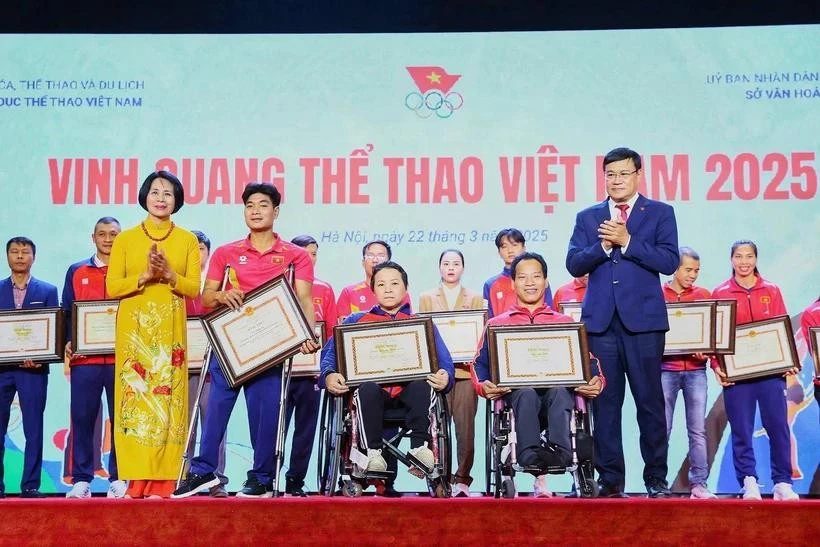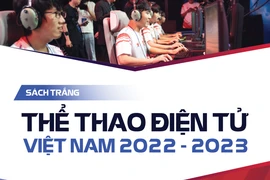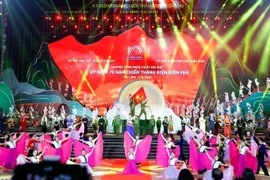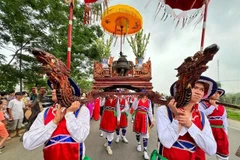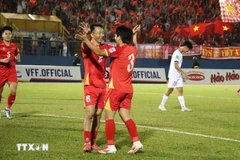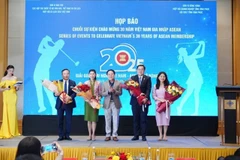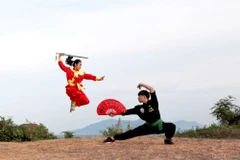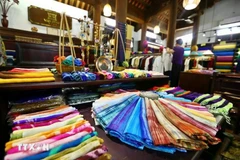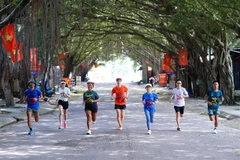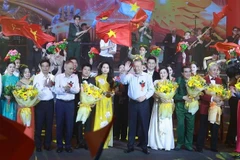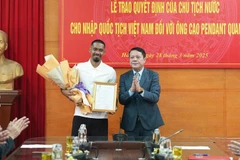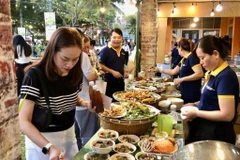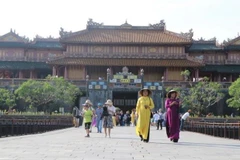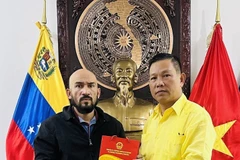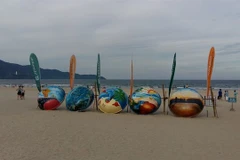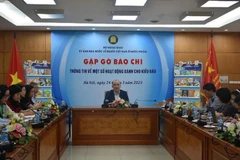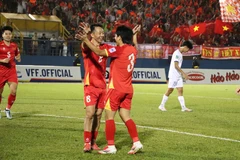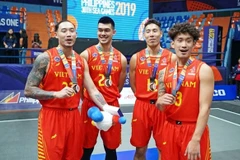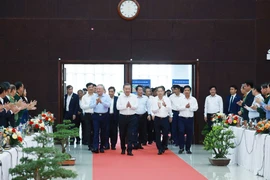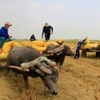Hanoi (VNA) – Investing in high-performance sports requires a systematic, professional, and long-term approach to obtain good achievements and position Vietnam’s sports sector in the global sports map, said insiders.
With the orientation of heavily investing in Olympic and ASIAD sports, high-performance sports has witnessed significant progress in recent years. Vietnam’s sports development strategy to 2020 identifed 10 priority sports in Category I, namely athletics, swimming, weightlifting, taekwondo, wrestling (lightweight), shooting, karate, women’s boxing, badminton, and table tennis; along with 22 priority sports in Category II. This strategy serves an important basis for orienting sport development.
Developing high-performance sports in line with global trend
Vietnam’s success in high-performance sports is reflected in its medal achievements at international competitions. In 2016, a Vietnamese athlete won the country’s first Olympic gold medal in shooting.
On February 22, 2019, the Prime Minister approved a project on selecting, training, and nurturing high-performance sports personnel by 2035, providing a crucial foundation for strengthening talent development and meeting the country's sports ambitions.
As a result, the selection and training of talents and young athletes have been reformed considerably, with most Olympic and ASIAD sports now having youth teams and national squads. Infrastructure facilities for training and competition venues continue to be upgraded and expanded. Currently, Vietnam has around 22,000 athletes from the talent teams to provincial, sectoral and national levels. Additionally, sports like football, volleyball, basketball, badminton, tennis, and golf are gradually professionalised, thus attracting private investment and improving training efficiency.
Circular No. 86/2020/TT-BTC, issued by the Ministry of Finance on October 26, 2020, regulates special nutrition policies for coaches and athletes. This timely adjustment helps enhance training facilities' capabilities to meet the demand of athletes, especially key athletes. Those with excellent achievements are also awarded prestigious titles and prioritised for admission to sports universities and colleges.
Dang Ha Viet, Director General of the Vietnam Sports Administration under the Ministry of Culture, Sports, and Tourism, said that the State’s incentives have facilitated the application of science and technology to high-performance sports. The engagement of the private sector in sports has improved, attracting more resources from society for developing high-performance sports.
In addition to professional training, athletes – especially those at national sports training centres – also have their access to education guaranteed. Policies for athletes and coaches have continuously been refined through State regulations and regular adjustments to meet practical demand.
Elevating high-performance sports beyond regional level

Vietnam's top female swimmer Nguyen Thi Anh Vien. (Photo: VNA)
Vietnam’s achievements at the Southeast Asian Games (SEA Games) have steadily improved, consistently placing the country among the top three in the regional rankings. However, the achievements and numbers of athletes participating in the Olympics and ASIAD competitions remain limited and inconsistent.
At the London 2012 Summer Olympics, 18 Vietnamese athletes qualified for the Games, winning a bronze medal in weightlifting. The country sent 23 athletes to the Rio 2016 Summer Olympics, securing its best-ever Olympic result – one gold and one silver in shooting. However, at the Olympics in Tokyo in 2020 and Paris in 2024, Vietnam had 18 and 16 qualified athletes, respectively, but failed to win any medals.
According to Viet, although Vietnam has maintained its good ranking and performance at SEA Games, its Olympic achievements remain inconsistent. A similar trend is seen at the Asian Games (ASIAD), where Vietnam – despite no athlete quotas – has still struggled to maintain stable achievements, winning only 1–4 gold medals per edition.
Each year. the Ministry of Culture, Sports, and Tourism organises training camps for about 800 athletes from young teams of more than 30 sports, serving as the primary talent pool for national teams. However, the limited number of young athletes has led to shortages in national squads. Additionally, there is a lack of qualified coaches, with only few possessing expertise at the continental or global level.
Comprehensive and long-term solutions needed
Many sports organisations, including the football, volleyball, and badminton federations, haven't been able to take on the responsibility of training athletes. Meanwhile, public awareness of the private engagement in high-performance sports remains inconsistent. Many still view it merely as a means of mobilising non-state funding, while some see it as the sole approach to sports development, leading to weak management and inadequate investment in the field.
Organising international training camps requires significant funding and allows only limited participation, making it an unsustainable solution. The language barrier also poses challenges to Vietnamese coaches and athletes when they undergo training abroad. Meanwhile, hiring foreign experts for national teams is constrained by salary limitations, making it difficult to attract experienced specialists capable of training athletes at the Olympic level.
In addition, the lack of top-tier international competitions also significantly impacts the level and performance of Vietnamese sports. Limited funding for training and participation in international competitions further reduces opportunities for Vietnamese athletes to compete, earn ranking points, and secure qualification for major events, especially the Olympics.
Viet said that compared to other countries in the region, Vietnam has a relatively large pool of high-performance athletes. However, a lack of modern equipment at training facilities has also limited both athlete development and performance.
As the global sports are experiencing vigorous development, it is a must to build a long-term plan, make appropriate investment, and adjust resources for high-performance sports in order to improve the country's sports achievements and gain a foothold in the world's sports landscape, according to the official./.
